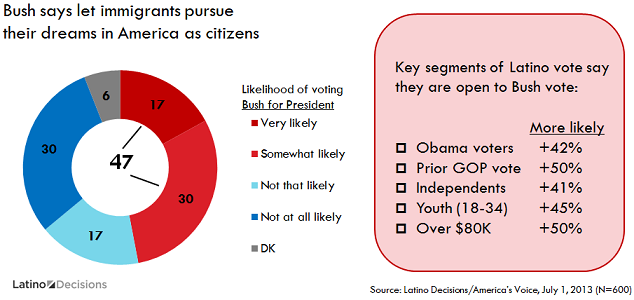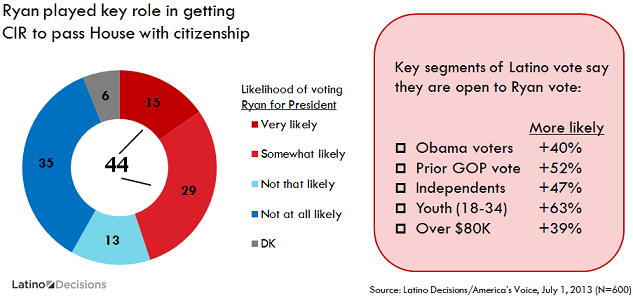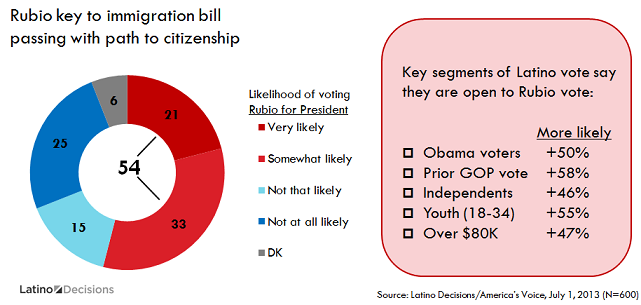A year ago this month, the Republican National Committee released its post-2012 election political autopsy report: the “Growth & Opportunity Project.” The “GOP”—a quite clever acronym, indeed—was the national party’s response to critics, both internal and external, about what ailed the party and what it could do to cure itself.
The Republicans had cause to believe the 2012 presidential election was winnable: Barack Obama was a vulnerable incumbent. Although the president won re-election, he did so by a smaller margin than in his initial election—a rare occurrence in presidential election history. Most surprisingly, Obama won despite a lower national turnout in 2012 than 2008, which typically implies a smaller share of non-white voters. That was not the case, however: Despite lower overall turnout in 2012 compared to 2008, the non-white share of the electorate inched up from 26 percent in 2008 to 28 percent four years later.
The “GOP” addresses a number of the party’s problems, including its technological and field campaign deficiencies. But much of the document’s focus is on ways to re-brand the party in an effort to appeal to a wider swath of the American electorate, with a special emphasis placed on Latino voters, who in the 2012 presidential election accounted for a double-digit share (10 percent) of the electorate for the first time. Section 2 of the “GOP,” entitled “America Looks Different,” addresses the party’s problem with Latino voters head-on: “If Hispanic Americans perceive that a GOP nominee or candidate does not want them in the country (i.e., self-deportation), they will not pay attention to our next sentence. It does not matter what we say about education, jobs or the economy; if Hispanics think we do not want them here, they will close their ears to our policies.” The document specifically recommends that the party embrace comprehensive immigration reform.
As a July 2013 poll by Latino Decisions confirms, opposition to immigration reform presents a formidable obstacle to the Republican Party’s appeal to Latino voters, many of whom would consider voting for Republican candidates for office, including the presidency, were they to support a comprehensive immigration reform package that includes a pathway to citizenship provision.

Potential Republican presidential contenders Marco Rubio, Jeb Bush and Paul Ryan would potentially enjoy a significant spike in support from Latino voters by backing comprehensive immigration reform.

In Rubio’s case, his support jumps to 54 percent, more than twice Mitt Romney’s 2012 share of the Latino vote (27 percent).

Although many notable “establishment” Republicans, including former party chairs Ken Mehlman and Ed Gillespie, want the party to find a reasonable solution on immigration in order to move the party past the issue, most congressional Republicans and the conservative voters who elect them remain opposed to reform. And as the Los Angeles Times reported this week, RNC chairman Reince Preibus also seems to be backpedaling on the issue. Preibus “downplayed the role of immigration reform as a gateway issue for Latino voters, saying it was more important for the party to simply engage with the community to share its message on other key issues,” the Times reported. The RNC chair even went so far as to clarify that the “GOP” was merely commissioned by the party, and is therefore not official party policy.
The Preibus press conference does not bode well for a Republican Party hoping in 2016 to attract Latino voters, the majority of whom will remain “ears closed” to the party’s message unless it agrees to a reasonable solution on immigration reform.
Thomas Schaller is political director at Latino Decisions, a political columnist for the Baltimore Sun, and professor of political science at the University of Maryland, Baltimore County.


